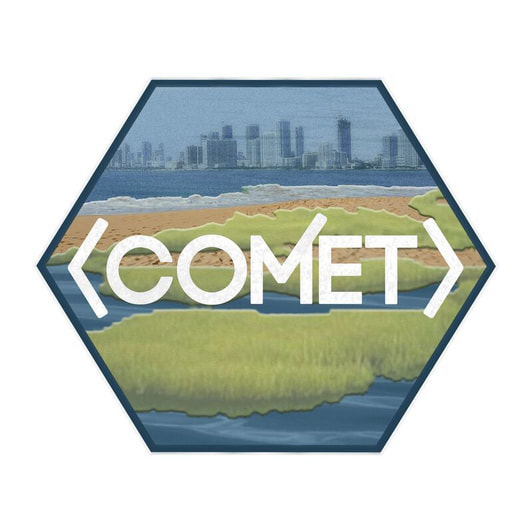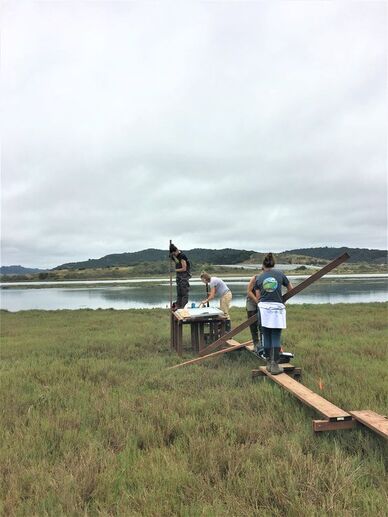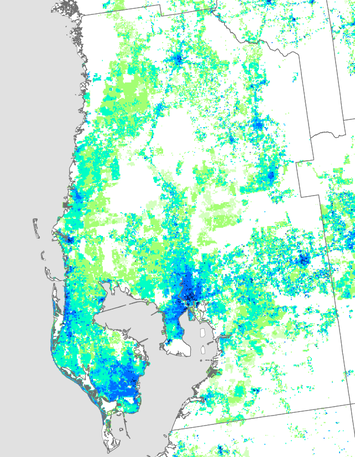Research
Broadly, the Braswell Coastal Ecosystems and Watersheds Lab studies the connections between watersheds, coastal ecosystems and people. Below are the current projects in the lab, but our interests can be summed up in these four core research areas:
1. Coastal wetland degradation and persistence
2. The effects of legacy land use on landform and biogeochemistry
3. The co-evolution of coastal communities and coastal ecosystems
4. How, why and when watershed nutrients and sediment are delivered to coastal ecosystems
1. Coastal wetland degradation and persistence
2. The effects of legacy land use on landform and biogeochemistry
3. The co-evolution of coastal communities and coastal ecosystems
4. How, why and when watershed nutrients and sediment are delivered to coastal ecosystems
Current ProjectsThe Creeping Disaster along the Coast: Built Environment, Coastal Communities and Vulnerability to Sea Level Rise (CDISC) This project explores the vulnerability of humans and the built environment to the impacts of sea level rise by integrating detailed spatial housing data provided by Zillow with measures of social vulnerability, sea level rise risk, and historical flooding. This integrated dataset allows the theoretical exploration of the role of the built environment in mediating traditional human-natural system interactions within the context of slow moving, persistent or creeping disasters. Based on data from coastal communities impacted by recent hurricanes, innovative statistical techniques are used to understand the drivers of vulnerability and potential impacts of natural disasters on community resilience. The open, freely available vulnerability datasets created in this project will be foundational for future disaster preparation, planning, and post-disaster recovery. Collaborators: S. Leyk, D. Connor, C. McShane, J. Uhl, and M. Joseph Funding: NSF Humans, Disasters and the Built Environment Award # 1924670 
|
Linking nutrient reactivity and transport in subsurface flowpaths along a terrestrial-estuarine continuum in Elkhorn Slough, CA
Salt marshes are critical “hot spots” of nutrient processing and retention and thus play an important role in improving coastal water quality. This removal is largely driven by sediment microbial activity, which is controlled by spatial and temporal variability in the availability in oxygen and organic matter. This project's objective is to address a substantial knowledge gap in our understanding of the hydrologic and environmental factors that drive solute fate and transport at the subsurface terrestrial-marine boundary. At the Elkhorn Slough National Estuarine Research Reserve, we couple field- and lab-based studies with reactive transport models to quantify the co-variation of hydrological and biogeochemical subsurface processes in coastal watersheds, with a particular emphasis on identifying drivers on N retention and removal over different hydrologic regimes. Collaborators: M. Zimmer, E. Seybold, C. Tatariw, A. Visser and B. Arora Funding: California Sea Grant; Department of Energy - Environmental System Science Coastlines and people Open data and MachinE learning sprinT (COMET) COMET is a series of 72hr events focused on data-driven Coastlines and People (CoPe) science. Three COMET events are planned, with funding for ~10-15 participants to attend each event (lodging, travel, per diem). Each participant will bring a research idea to pitch to the others - ideas should focus on using open data to do science related to Coastlines and People. After project pitches, participants will divide up into self-selected groups to work on ideas for 72 hrs. Groups will give a final ‘report out’ after 72 hrs to present what they accomplished. All code written at the event will be made open source, put on GitHub, and given a DOI, and groups will also submit a report/working paper to EarthArXiv. We intend for these open deliverables to be the seeds of future research between participants and the wider CoPe Community. Website: https://copecomet.github.io/ Collaborators: E. Goldstein and C. McShane Funding: NSF Coastlines and People EAGER Award #1940006 |


